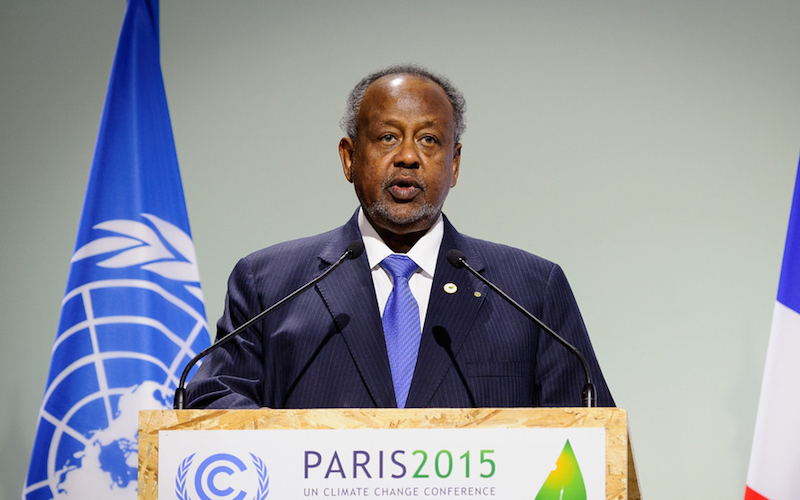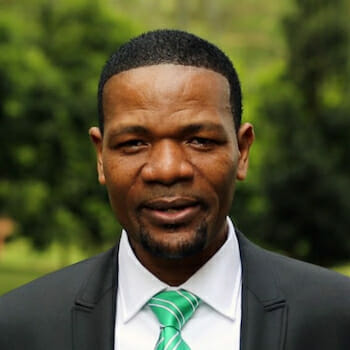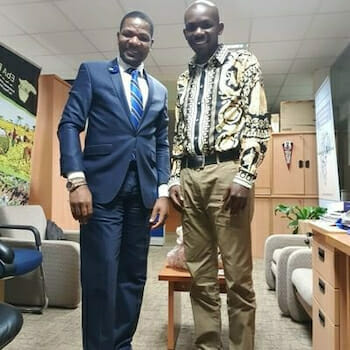
The Implications of COP21 for Africa
Nearly 200 countries from across the globe collectively and unanimously adopted a historic climate deal that commits all countries to emissions cuts and prioritized adaptation. The agreement’s takeaways include keeping global temperature increase “well below” 2C and to pursue efforts to limit it to 1.5C, countries to submit updated NDCs every 5 years with each succeeding NDC being progressively more ambitious than the preceding one is a positive step, balanced allocation of finances between adaptation and mitigation needs of developing countries; developed countries to communicate every two years the “indicative” amount of money that they will be able to raise over the next two years, and amounts from public financing and developing countries encouraged to raise domestic resources on voluntary basis. It is worth noting Africa could raise up to $3 billion annually domestically for adaptation by 2020.
Paving an inclusive growth pathway
Considering Africa is most vulnerable to past emissions yet its emissions are negligible, inclusion of adaption financing, and a strong review mechanism to increase the amount over time is a vital highlight.
In addition, considering the region is not locked in ‘carbon intensive growth models’ this deal is a probable win-win, providing an opportunity for sustainable industrial development with minimal or zero transition costs by leveraging opportunities in both adaptation and mitigation. But this is not a given. The onus is on governments, the private sector, development partners, academia, and all of good will to actualize this win-win by prioritizing investments that leverage the Paris Agreement Framework.
Opening the door to innovative solutions
Energy poverty in Africa is high at over 60% or 621 million people while the continent has vast renewable resources. The situation is worse in rural areas, where 70% of Africa’s poor reside. Here, grid access is estimated at only 1% – 8%. This unavailability constricts inclusive development. In addition, Africa’s poor living on less than $2.50 daily pay up to 20 times more, an estimated $10 billion annually on unclean sources for lighting than rich households connected to the grid spend on their lighting, further entrenching poverty circles.
However, a proposal out of Paris to mobilize resources in solar investment is an opportunity that governments in Africa can tap through relevant policy and attract such investments to bridge this gap. Countries need to start by formulating policies that incentivize investment in clean energy, off and mini-grids to expand energy access to vulnerable poor rural communities and spur rural industry and create jobs without piling up carbon.
This should be concurrent with policies to dis-incentivize over reliance on fossil fuels. It is worth noting that oil subsidies in Africa cost an estimated $50 billion every year, and 65% of subsidies in Africa benefit the richest 40% of households. Considering that this amount equals 5.7% of Africa’s GDP and exceeds the regions spending on health, scrapping subsidies and redirecting funds to low carbon initiatives is a worthy policy move towards more economically inclusive and environmentally sustainable societies. Reversing this through investing in off-grid and mini-grid clean energy solutions which are the most economical solution for electrification in remote areas will improve household savings & create jobs, thus combat poverty while reducing emissions.
Clean energy for Wealth Creation
Globally, the renewable energy sector created 7.7 million jobs in 2015, an 18% increase from 2014. In Africa, while this potential is yet to be fully unleashed, it is projected that the continent can create a thriving electricity supply industry with an estimated 2.5 million temporary and permanent jobs. Specifically, for solar, with the abundant sunshine and over 50% of Africa’s population not connected to the grid, demand for solar home systems (SHS) to fill this gap is great. In meeting this demand, potential for job creation for Africa is immense, as demonstrated by Bangladesh a member of the Least Developed Country groups, whose SHS sub-sector created in excess of 115,000 direct jobs and an additional 50,000 induced in downstream business due to availability of solar in rural areas. Africa can replicate this success by ensuring financial and technical support from governments aligned to new business models.
On savings, Africa’s poor households, which spend up to 20 times more on energy for lighting than high-income households connected to the grid can make plausible savings of up to $8 billion by making grid power and off-grid renewable options like solar more accessible to them. In total, switching to clean and accessible grid can reduce poverty in SSA by 16 – 26 million people.
Environmentally, it is projected that leading up to 2040, Africa can potentially achieve a 27% reduction in C02 emissions with an up-scaled clean energy sector. Africa should capitalize on clean energy to sustainably improve access to power and accrue socio-economic and environmental benefits to its people.
Optimize the agro-value chain
The deal expressed the need to restore degraded lands in Africa. Proposals of restoring not less than 127 Ha of degraded lands in Africa and other parts of the world, mostly agro-ecosystems elicit opportunities for simultaneous climate adaptation, food security and income & job creation by prioritizing optimized agro-value chains. With relevant policy and partnerships, this could also be achieved through voluntarily mobilizing internal resources as proposed in the deal.
In Africa, agriculture is not only a source of food but of livelihoods. The sector employs up to 64% of the population, 70% of Africa’s poor reside in rural areas and depend on agriculture with women producing up to 80% of the food. Investments to enhance productivity in this sector will ensure not only food security but inclusive growth, opportunity and poverty reduction. Optimizing the agro-sector in Africa through applying Ecosystem Based Adaptation approaches (EBA) that enhance ecosystems and linking these ecological approaches to supply and demand side value chains including affordable financing, off-grid / mini grid clean energy for processing to spur rural agro-industry and value addition is a potential silver bullet solution to achieving climate adaptation from enhanced ecosystems, food security, incomes and job creation all without further escalating greenhouse gases.
Embracing EBA for on-farm production can enhance yields by up to 128%, lower climate induced crop failure risks and enhance farmer incomes at lower environmental and financial cost. Forward and back-ward linkages of ecological approaches to supply and demand side value chains and value addition enterprises can create as many as 17 million jobs and catalyze an ago-sector projected to be worth $1 trillion by 2030. The World Bank reports that in Africa, a 10% increase in crop yields translates to approximately a 7% reduction in poverty. Growth in agriculture is at least two to four times more effective in reducing poverty than in other sectors.
Utilizing the Paris Agreement
In Africa, the biggest problem is not in generating ideas but in implementing them and this is the case because partnerships needed to ensure implementation are usually not prioritized. Utilizing already established implementation platforms can provide the needed impetus to implement COP21. The Ecosystem based Adaptation for Food Security Assembly (EBAFOSA) provides this opportunity.
EBAFOSA is an inclusive pan-African policy framework and implementation platform and it provides a solutions space in fostering partnerships to blend the strengths of governments, the private sector, non-profits, academia, research and individuals among others to build mutually beneficial partnerships toward achieving implementation. Its mandate seeks to enhance productivity of the agro-value chain holistically by ensuring proven EBA-driven agriculture approaches and value chains are effectively up-scaled into policy and implementation throughout the continent through country driven processes.
EBAFOSA promotes use of ecological approaches to producing food which enhance yields at minimal environmental cost while simultaneously enhancing ecosystem capacity through improving tree cover, improving soil stability, soil organic matter etc. (e.g. conservation agriculture, agro-forestry etc.). It hence ensures food production processes are sustainable.
EBAFOSA also fosters linkage of ecological approaches to commercial supply and demand side value chains and value addition enterprises to create additional jobs and income opportunities at community and country level. This enhances incomes at communities and country level to enable investment in resilience building.
EBAFOSA also promotes the use of clean energy in value addition processes to reduce the carbon emission of food processing while creating additional income and job opportunities. Higher incomes enhance adaptation capacity of communities.
An Opportunity Not to Miss
The Paris Agreement presents an enormous opportunity to create and implement inspired strategies that utilize new approaches, technologies and foster unprecedented regional cooperation and idea sharing. The potential for lasting change is limitless. Let’s seize the moment and build on these ensuing opportunities! We have the tools to act and all we need is to use them now!


